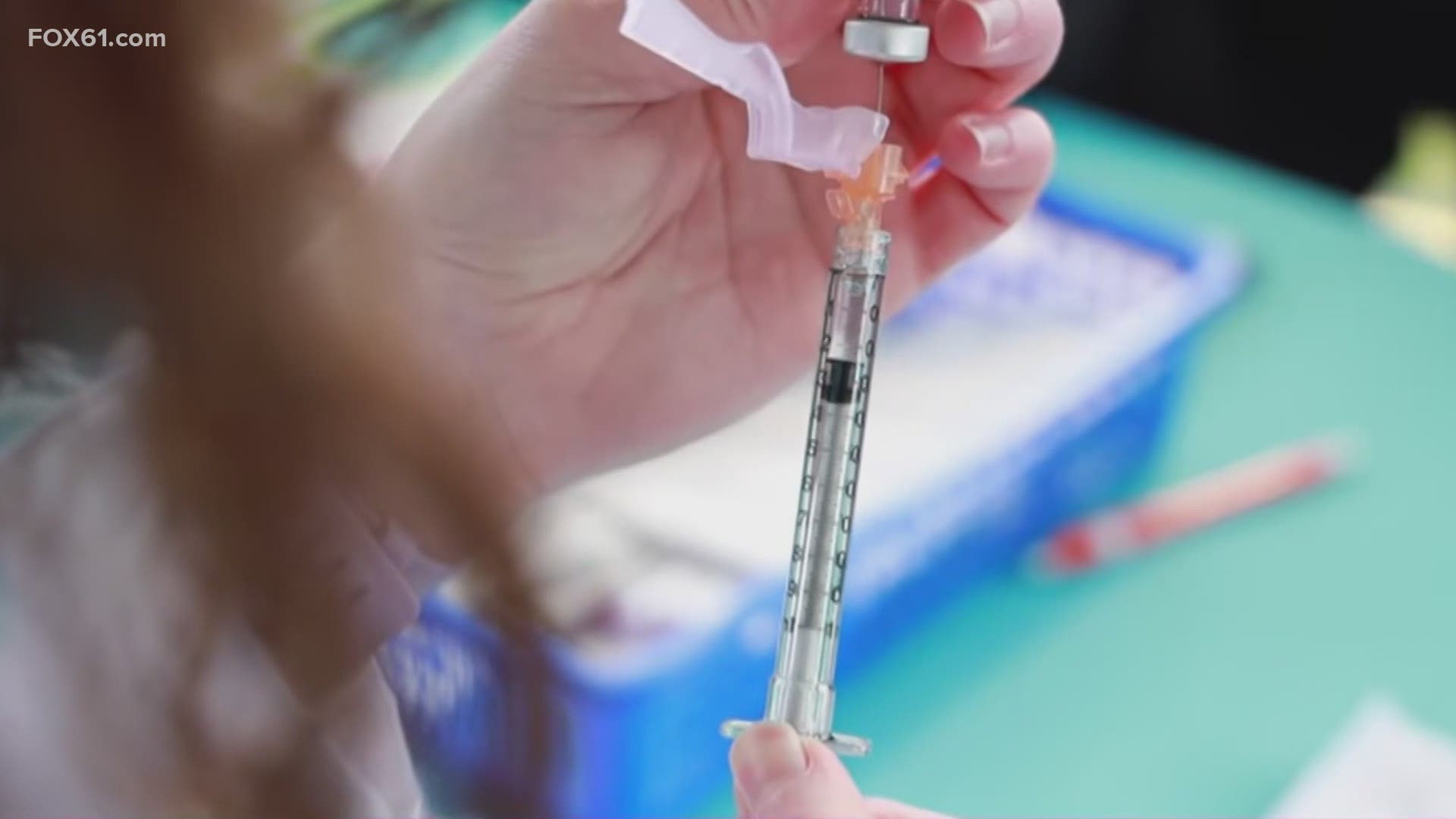HARTFORD, Conn — Connecticut is on track to vaccinate everyone in the Phase 1-a group by the end of January. Now, the focus turns to the more complicated Phase 1-b group, where demand is expected to outpace the supply.
On Tuesday, the allocation subcommittee of the state's vaccine advisory group met to outline who will be up next to get the vaccine. "The 1-b group is going to take us months," said Gov. New Lamont at Monday's COVID-19 news briefing. The subcommittee will make recommendations to the Governor, but he has the final say. "My inclination is to listen to them," said Gov. Lamont.
Phase 1-b is expected to include about 800,000 individuals. "Not too many more than that," said Benjamin Bechtolsheim, the Director of Connecticut's COVID-19 vaccination program, "because that allows us to have a manageable phase size. We think that’s something that can be accomplished in roughly 10 weeks of a vaccine rollout."
They’ve gotten over 100 letters with recommendations on who should be first. Allocation Subcommittee Co-Chair Zita Lazzarini said, "Lots of materials both from representatives of groups and definitely from individuals as well. We are reading all of those."
The subcommittee will almost certainly recommend vaccinating people 75 and older. They may push younger people with co-morbidities back by a few months.
Then they addressed the essential workforce and may recommend vaccinating:
- People in congregate settings (like prisons and group homes, both staff and regular population)
- First responders
- Public safety workers
- Transportation workers
- Teachers and staff (including higher education)
- Manufacturing workers
- Food and agricultural workers including field workers, food production and food prep (including both grocery store and restaurant workers)
Some members of the committee raised concerns Phase 1b wasn’t equitable enough. Tekisha Dwan Everette, the Executive Director of Health Equity Solutions said, "We are talking about people and access to the vaccine through a lens of utility or job function and that is problematic because it reinforces our status quo and structural racism that has led people to the jobs they are working in or not working in."
Off to a good start, Connecticut has administered more than 75,000 doses and has received more than 165,000. "What limits us is not our intent to get as many people vaccinated as fast as we can we’ve got the platform in place and the infrastructure to do that what limits us is the supply of vaccine," said Gov. Ned Lamont.
In some respects, Connecticut, like every other state, is flying blind. "I’m told that there will be weekly allocations. In terms of numbers, I don’t have any numbers," said Rep. Rosa DeLauro when asked about vaccine allotments. And that’s a problem. Unable to get a clear count from the feds in advance isn’t a sustainable model. "Yeah, we don’t necessarily control the supply chain. We’re counting on what we get from Operation Warp Speed," remarked Gov. Lamont.
The allocation subcommittee noted that there will also be a Phase 1-c, followed by Phase 2. There is still more work to be done to clearly identify who would be eligible within these broad categories.

